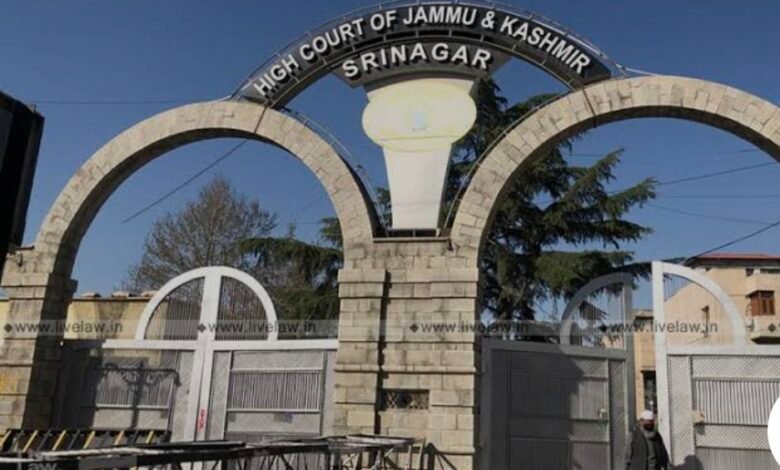J&K High Court Sets June Deadline to Clear 10-Year-Old Case Backlog

JAMMU: Keeping in view the ever-increasing overall pendency of cases, backlogs and arrears, the High Court of Jammu & Kashmir and Ladakh has formulated Action Plan for disposal of substantial 10 years old and other cases by the District Judiciary in both the Union Territories and fixed a deadline of June 30, 2025. Moreover, cases involving senior citizens and terminally ill persons will get priority and implementation of entire Action Plan will also be monitored by Chief Justice.
The reports received from different courts by the High Court show that some courts have substantial number of cases which are more than 10 years old and all such courts have been told to expedite their resolution by the end of June 2025, read the circular issued by State Court Cases Management Committee.
In the courts with fewer than 50 cases which are more than 10 years old or with no such cases, the District Case Management Committee will identify 50 oldest pending cases (25 civil cases and 25 criminal cases) and focus on their expeditious resolution with the aim to resolve such oldest cases by the end of June 2025 provided that trial in such cases has not been stayed by the higher courts.
Similarly, in the courts where execution petitions which are more than three years old are pending and essential for enforcing court judgments, focus will be on resolution of such execution petitions by the end of June 2025. Likewise, the courts will also identify all appeals/revisions which are pending for more than two years and focus on their resolution by the end of June 2025.
The exclusive courts such as the Family Courts, Commercial Courts and Juvenile Justice Boards will identify their 100 oldest cases and work towards their resolution by the end of June 2025 and those District Courts exercising jurisdiction in matrimonial cases shall focus on the resolution of 50 oldest matrimonial cases.
The courts holding special jurisdiction like the courts exclusively constituted for the trial of cases under the POCSO Act or trial of offences against women will identify and focus on the resolution of 50 oldest cases by the end of June 2025. Similarly, courts which try cases under the Prevention of Corruption Act and courts which try cases under the NIA Act will identify 25 oldest cases and ensure their resolution by the end of June 2025.
Likewise, the Motor Accidents Claims Tribunal will identify 200 oldest claim and 50 oldest execution petitions and focus on their resolution by the end of June 2025. The other courts which also exercise powers of the Motor Accidents Claims Tribunal will identify 50 oldest claims and 20 oldest execution petitions for disposal by June 30, 2025.
The High Court is cognizant of the fact that most of the delays that take place in the criminal trials are at the stage of framing charges and recording prosecution evidence and to address this issue set of guidelines/instructions have been issued and stress has been laid on use of Information Technology to examine formal witnesses and overseas witnesses through video-conferencing.
Further, all the courts have been asked to give priority to the cases which involve senior citizens and individuals suffering from terminal illness during implementation of the Action Plan. “This approach may ensure that all such individuals receive timely justice and are accorded due consideration in the light of their unique circumstances”, read the circular.
The courts have also been asked not to grant frequent and unnecessary adjournments to the litigating parties in the target cases and if adjournments become necessary they may grant adjournments subject to costs and set shorter dates for hearing of those cases to ensure more efficient and expedited resolution of cases.
It has been made clear that High Court may consider the disposal rate of the target cases at the time of recording of the Annual Confidential Reports of the Judicial Officers and Principal District Judge concerned shall consider the disposal rate of the target cases at the time of writing of remarks on the self-appraisal reports of the Judicial Officers.
Besides Chairperson of the State Case Management Committee and Administrative





